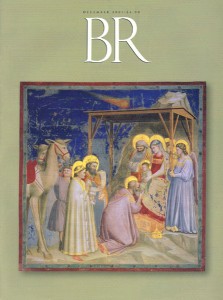
The name Peshitta, according to a majority of scholars, means “simple” or “straightforward.” For those who lived in the first and second centuries C.E. in the area that today is Turkey, Iran and Iraq, the name would have been plainly understood. The Peshitta is “simple” in contrast with the more elaborate and scholarly translation of the Greek Bible once used in the same region. But for today’s scholars, there’s not much simple about this ancient translation of the Old and New Testaments, which remains authoritative in the Church of the East, the Syrian Orthodox Church and other Near Eastern and Indian churches. Many questions about the date and origins of the Peshitta remain unanswered.
The Peshitta consists of a translation of the Christian Bible into Syriac, an Aramaic dialect used in ancient Edessa (in present-day Turkey) and Western Mesopotamia. Syriac (also called Eastern Aramaic or Classical Syriac) is close to (but not the same as) the Aramaic dialect spoken in Judea in Jesus’ day. The books of the Hebrew Bible include the Apocrypha. The New Testament omits the Book of Revelation, a handful of gospel passages and the epistles 2-3 John, 2 Peter and Jude.
Already a library member? Log in here.
Institution user? Log in with your IP address.

